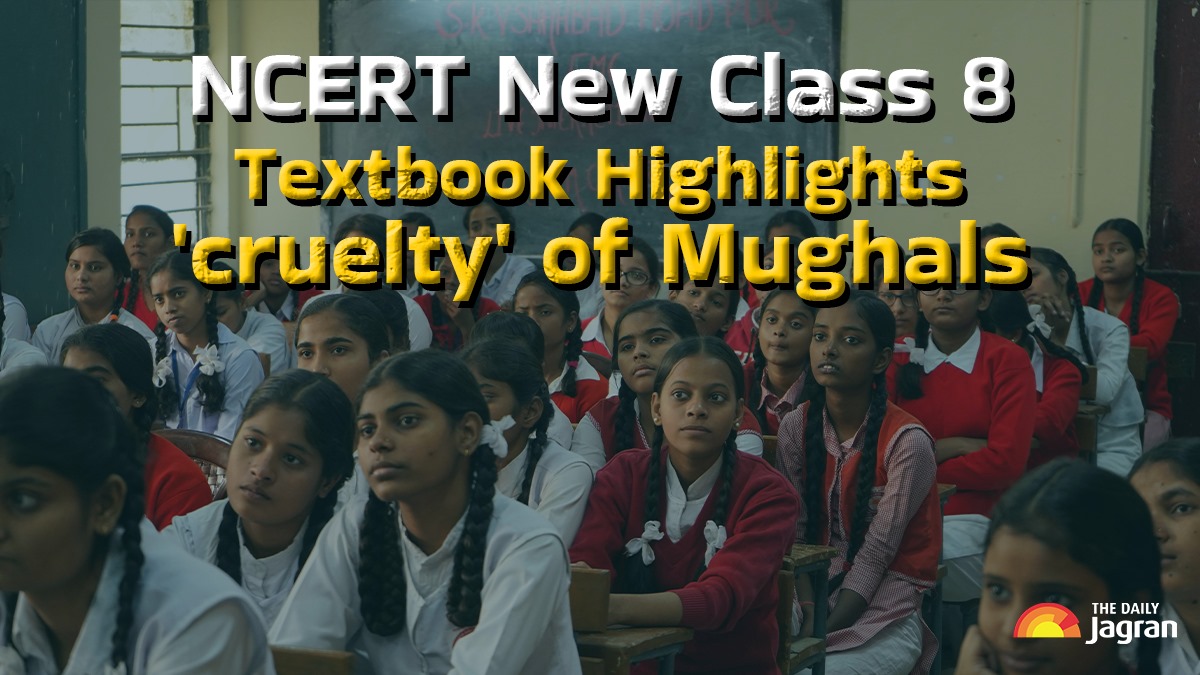- By Sarju Saran Tiwari
- Wed, 16 Jul 2025 02:01 PM (IST)
- Source:JND
NCERT’s New Class 8 Social Science: The NCERT’s newly launched Class 8 Social Science textbook under the NEP 2020 and NCF-SE 2023 frameworks has made headlines for its raw and direct representation of medieval Indian history. Specifically, the textbook flags acts of brutality during the Delhi Sultanate and the Mughal period, naming rulers like Babur, Akbar, and Aurangzeb for violent military campaigns, temple destruction, and religious intolerance.
Titled Exploring Society: India and Beyond, the book aims for an unflinching yet responsible look at India’s complex past. Aimed at fostering critical thinking, it includes cautionary notes stating that no present-day community should be held accountable for historical events. It represents a significant shift from earlier, more reserved textbooks, sparking academic and public debate alike.
Notable Historical Revisions: Brutality and Intolerance Emphasised
Babur: Described as a ruthless conqueror who massacred entire cities and created “towers of skulls”; contrasting with previous portrayal as a scholarly ruler.
Akbar: His reign is defined as a “blend of brutality and tolerance,” with reference to the Chittorgarh massacre of 30,000 civilians despite his later inclusive policies.
Aurangzeb: Highlighted for religious violence including destruction of temples in Banaras, Mathura, Somnath, and gurdwaras; though political motivations are acknowledged.
Malik Kafur (under Alauddin Khilji): Attacks on major Hindu pilgrimage sites like Srirangam, Madurai, and Chidambaram are mentioned explicitly.
Jiziya Tax: Now described as humiliating and a mechanism for forced religious conversion, unlike past descriptions that framed it as a simple administrative tax.
The Rationale: Honesty in History, Not Guilt Today
NCERT includes a “Note on Some Darker Periods in History”, urging students to study historical atrocities without passing modern-day blame.
A cautionary note follows the Mughal chapter, emphasizing dispassionate understanding over emotional or communal reactions.
Encourages viewing history as a tool for healing and ensuring future fairness, rather than perpetuating division.
Designed for NEP 2020: Integration, Innovation & Inclusivity
New textbook structure merges history, civics, and geography in Part 1, making learning more integrated.
Follows NEP 2020’s vision of evidence-based, inclusive education.
Trims prior sugar-coating of painful history while balancing the narrative with economic prosperity and cultural growth from 13th–17th centuries.

